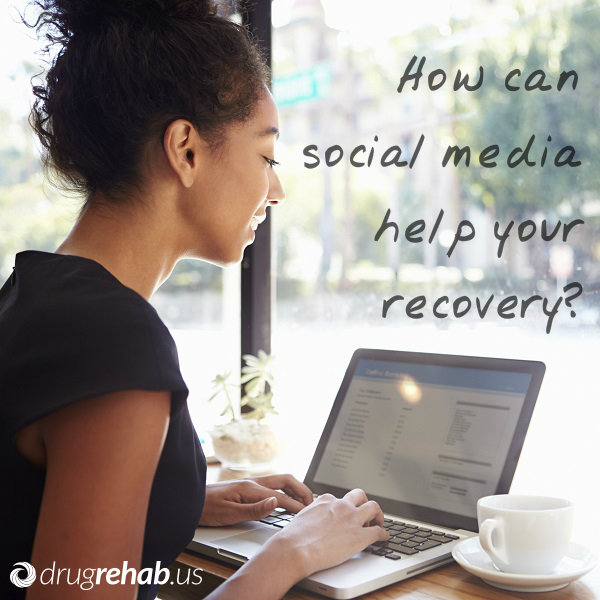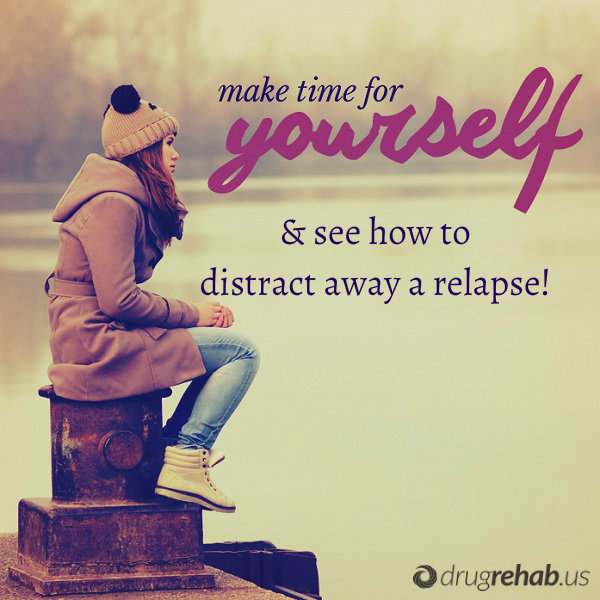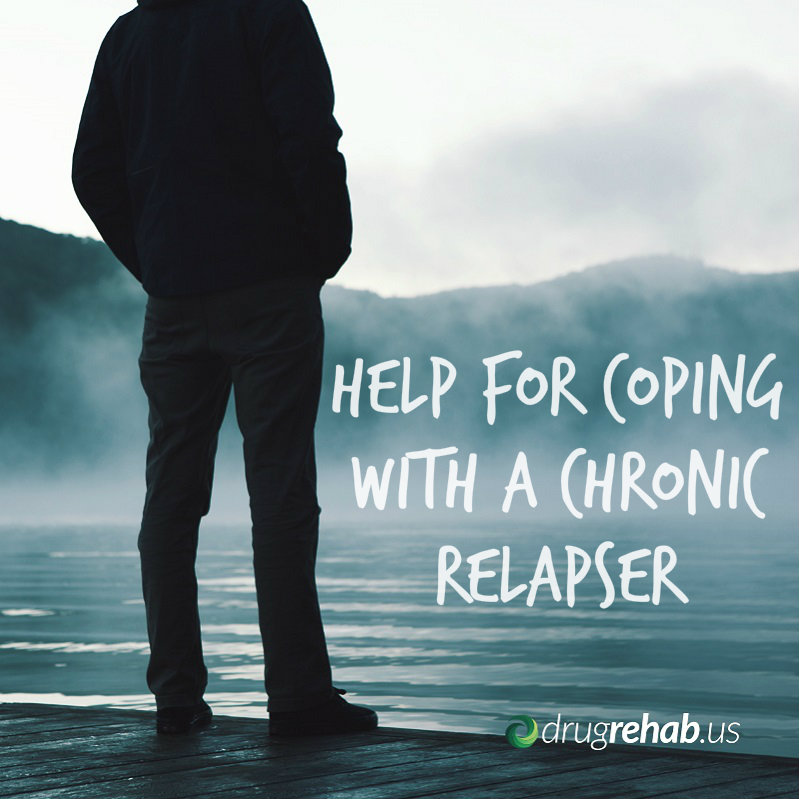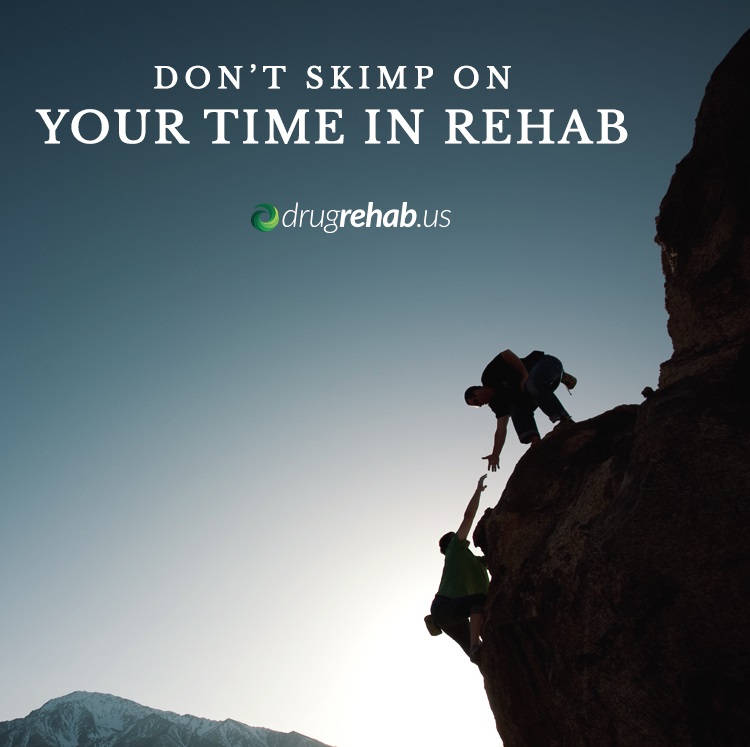Any drug court that hopes to obtain federal funding will have to allow addicts access to drug replacement therapies for heroin and prescription opioid addiction, the U.S. government has ruled.
Treatment programs that practice abstinence-only therapies will still remain perfectly acceptable in most cases, but when doctors recommend drug maintenance as the best alternative for individual defendants, drug court judges will have to respect that opinion.
Changes In Addiction Rehab Policy
These changes in existing policy were announced in February by Michael Botticelli, director of the White House Office of National Drug Control Policy. Previously it had been left to the discretion of drug court judges to decide which types of rehabilitation and treatment were appropriate, and these institutions have a long history of rejecting drug replacement strategies. In Kentucky, there are signs posted outside drug courts instructing defendants in methadone or Suboxone maintenance programs to wean themselves off of these drugs before their court dates if they want to avoid being sent to prison.
Maintenance Programs More Effective Than Conventional Abstinence-Based Programs?
But the latest evidence strongly suggests drug maintenance programs, particularly those that rely on Suboxone as a replacement drug, are extremely useful and do an excellent job of helping opioid addicts stay away from the substances that endanger their lives. Abstinence-based treatments in general are more effective against alcoholism than against heroin and OxyContin addiction, which cause changes in the brain that can be incredibly difficult to overcome when relying on willpower alone.
 Studies show more than 90 percent of heroin and opioid painkiller addicts will relapse back into drug use within a year of conventional rehabilitation, with the majority dropping out of treatment programs before reaching the end. In some cases, this may show a lack of commitment, but it is still data that treatment centers cannot afford to ignore.
Studies show more than 90 percent of heroin and opioid painkiller addicts will relapse back into drug use within a year of conventional rehabilitation, with the majority dropping out of treatment programs before reaching the end. In some cases, this may show a lack of commitment, but it is still data that treatment centers cannot afford to ignore.
Even outside structured treatment programs, Suboxone is extremely popular with opioid addicts, so much so that a thriving underground market for the drug exists among those looking to self-medicate themselves out of their drug habits. But only 2.5 percent of physicians across the United States have gone through the certification process necessary to prescribe this maintenance medication, helping to repress the availability of the drug.
Most physicians and treatment experts don’t recommend Suboxone or methadone maintenance therapy for opioid addicts, preferring to stick with what they see as the tried-and-true methods of abstinence and the drug-free lifestyle. Substitution drugs go against the grain, maintaining a state of addiction despite their abilities to decrease cravings and reduce the opioid high.
But plenty of studies have verified the relative safety of drug maintenance therapy. At the present time, prescription opioid painkillers plus heroin overdose take the lives of about 25,000 Americans each and every year, and the number of victims has increased exponentially over the last 10 to 15 years. Relapse following unsuccessful treatment is a common killer in these cases, because opioid addicts who go back to using after a period of abstinence have reduced tolerance for drugs and can overdose easily if they take the same dosages they did in the past.
Benefits Of Drug Maintenance Therapies
The reliance of drug courts on abstinence-based rehabilitation is understandable, given the fact that drug maintenance therapy does replace one type of opioid addiction with another. But having one addiction kill the other can play a constructive healing role for desperate individuals who lack the capacity to beat their drug dependencies without extra help.
Willpower is an important part of any addiction recovery regime, and all addicts who plan to get better must make a determined effort to overcome the brain disease that plagues them. Opioid addicts undergo significant neurological changes that won’t go away overnight, however, and that is why drug maintenance can help bridge the gap between dependency and recovery.
Ideally, addicts who use methadone or Suboxone will eventually be able to wean themselves off of these substances under medical supervision. But until they do, these drugs can keep them alive, still in a position to win a battle against addiction that can so easily end in tragedy if intervention is unsuccessful.
Drug courts can provide a route to recovery for addicts only if they remain open to all possibilities, including those that may seem a bit outside the box. The new federal government policy may force their hand to a certain extent, but is will also help raise the consciousness of drug court judges who have a responsibility to keep up with the times.
Read Our Latest News Blogs
16 Mar 2015
How Social Media Can Help You In Recovery
If you use social media sites like Twitter, Facebook, or Instagram, you know that they help you connect with friends old and new, family living far away and new people you’ve never met. What if these sites could be more than just a way to pass the time when you’re waiting in line or a distraction when you should be working?
Social Support And Recovery
 Experts and ordinary people alike have long known that socializing with other humans is beneficial. Social support, whether in the form of having family to rely on, a close group of friends or just peers who share similar experiences, improves your health in a number of ways.
Experts and ordinary people alike have long known that socializing with other humans is beneficial. Social support, whether in the form of having family to rely on, a close group of friends or just peers who share similar experiences, improves your health in a number of ways.
Socializing reduces stress. It also provides a group of people who can offer help when you need it. You repay the favor by helping your friends and family when they need it. Support groups for addiction recovery have been in use for decades for these reasons. Relying on other people helps to strengthen recovery and prevent relapse.
Social Media As Social Support
If you are in recovery, you may already belong to a support group in the real world. Maybe you have a sponsor and go to meetings once a week. There is more you can do to reach out to and engage others, especially with access to technology. Social media support groups are more common now than ever and include groups ranging from traditional alcoholic and drug use support to compulsive gambling and even sex addiction support. Whatever your issue, you can find a support group for it.
Here is how that online group can help you and your recovery:
- Keep you connected – Do you remember what it was like to leave rehab? To go from that place of full support and constant connection to a new life as a sober person? It was pretty scary, but if you could stay connected with the people you came to know and care for in your program, your transition will be easier.
- Provide stability – Support groups in the real world are great and shouldn’t be replaced, but they aren’t always stable. People come and go from these groups and sometimes the groups fall apart altogether. Online social groups are easier to maintain and people can connect quickly to check in without needing to go to a meeting. This can mean a more stable social group over time.
- Share achievements – After a really bad day, you resisted going to the store for a bottle of wine. Instead of going to bed feeling exhausted and alone, get online and share your experience with your social media support group. Get the encouragement you need to face the next day.
- Get and give encouragement – There is nothing like the instant connection you get on social media. If you need some words of support but your next support group meeting isn’t until tomorrow and your sponsor isn’t answering the phone, your social media group can be a lifeline. Even better, you can be there for someone else who needs you in the moment.
- Stay engaged – It’s much easier to turn to an online group than to pack up and head out to a face-to-face meeting. While you should still push yourself to go to meetings, a social media support group can be a great way to keep you engaged in your recovery.
Social media sites have their downsides. They can be distracting and offer up some pretty meaningless content. But if used in a smart way, these sites can provide you with recovery support that may make the difference between continued sobriety and a relapse.
Read Our Other Posts On Relapse Prevention Tips!
05 Mar 2015
Should I Go Back To Rehab?
Relapses are common for anyone struggling with a chronic disease, whether it is diabetes, high blood pressure, addiction or any other. By definition, a chronic illness is one that can’t be cured and requires continuous treatment. Not keeping up with treatment means risking a relapse. As an addict, this doesn’t mean that you always have to be in intensive therapy, but you need to be aware of your feelings, your moods and your cravings and up your treatment as necessary.
Factors To Consider When Deciding If You Should Go Back To Rehab
Whether you need to return to rehab after a relapse is a personal choice, but there are several factors anyone should consider.
Can You Afford Rehab?
 In a perfect world, your health care needs would come first and all other considerations would be secondary. The truth is you have to think about practical issues. Rehab isn’t like going to the doctor for a checkup or to change your prescription. It means taking time from work and family to spend weeks or months in a facility working on just you and your illness. Look at your finances, your health insurance if you have it, your job situation, and talk to your family. From this information you can determine if you can practically afford rehab for a second or third time.
In a perfect world, your health care needs would come first and all other considerations would be secondary. The truth is you have to think about practical issues. Rehab isn’t like going to the doctor for a checkup or to change your prescription. It means taking time from work and family to spend weeks or months in a facility working on just you and your illness. Look at your finances, your health insurance if you have it, your job situation, and talk to your family. From this information you can determine if you can practically afford rehab for a second or third time.
Consider Your Rehab Options
Another thing to think about is where you would go if you returned for another stay in rehab. Did you like the facility you went to previously? Was it helpful, or did you feel like you could have chosen better? Rehab can become a revolving door in a worst-case scenario with an addict going back again and again. There are many reasons this happens. Sometimes it is simply the nature of the disease, or the addict is not ready to give up drugs yet. In some cases it’s the facility that isn’t caring for patients well enough. Give careful thought to whether you would return to the same rehab program or try a new one before you make a choice.
Listen To Others
Sometimes the people around you are better able to judge your situation and your needs than you are. Listen to the people who care about you and who have been around you long enough to know when you need serious help and when you can pull through with their support. Also, listen to any health professionals with whom you are working at the moment. If you have been doing regular therapy sessions, talk to your therapist about it. If you have a sponsor, talk to her.
Get Some Kind Of Help
You may choose to go back to rehab or not, but whatever you decide, make sure that you do get help. A relapse can be serious and it can put you back on a dangerous path that you have worked hard to get away from. If you don’t want to or can’t go back to rehab, consider starting up some therapy sessions or increasing their frequency if you already work with a therapist from time to time. You can also turn to support groups. Join one if you haven’t already, or go back to attending meetings if you stopped.
The important thing after a relapse is to do something. Don’t just let it go and hope it was a one-time slip. Take it seriously. Talk to friends and family. Talk to a therapist. Reflect on your feelings and your sense of whether you can stop here or if you will keep using. Consider your options and then make a choice.
Find A Drug And Alcohol Rehab Facility Near You Now!
Long-Term Recovery Is Possible! Believe In Yourself – We Do!
02 Mar 2015
How To Use Distraction To Avoid Relapse
Relapse is an inevitable part of addiction recovery for many people, but the goal is to avoid it. If you, or your loved one in recovery, can avoid using again you can avoid resetting the clock on sobriety. Not using again when you feel intense cravings or when a trigger makes you reach for a glass or a pill is difficult. It’s beyond difficult. It sometimes feels impossible.
Willpower is required, but as an addict you need what seems like an inexhaustible well of it. You need far more than most people need in everyday life. Learn from the experts on willpower.
The good news is that you can exercise it like a muscle, and part of that involves distracting yourself.
Learning About Self-Control From The Marshmallow Test
 A famous study involving willpower and self-control has shown us just how important the ability to delay gratification is. The study used children to test willpower and then tracked them later in life. The kids were given a marshmallow and told they could eat it right away or wait 15 minutes and get a second marshmallow. Each child was then left alone with the marshmallow for the 15 minutes. Those that could resist the urge to eat the marshmallow and wait to get two were much more likely to be successful later in life. They did better in school and even earned more money later.
A famous study involving willpower and self-control has shown us just how important the ability to delay gratification is. The study used children to test willpower and then tracked them later in life. The kids were given a marshmallow and told they could eat it right away or wait 15 minutes and get a second marshmallow. Each child was then left alone with the marshmallow for the 15 minutes. Those that could resist the urge to eat the marshmallow and wait to get two were much more likely to be successful later in life. They did better in school and even earned more money later.
What addicts in recovery can learn from the marshmallow test is how to have self-control in the face of the intense urge to use again. Researchers observed kids using a variety of techniques to avoid giving in to instant gratification. What came up again and again, and what other researchers have found helps to strengthen willpower, is distraction. In the face of a craving, distract yourself.
Tips On How To Distract Away A Relapse
Of course, there is a huge difference between a child drawn to a marshmallow and a recovering addict facing a bottle of vodka, but you can still use the same technique of distraction. Distraction is used in a variety of settings to improve willpower, most notably among people trying to lose weight. Their techniques and rules can help you avoid relapsing. Remember that practice and repetition are important. The more you make these distractions into habits, the easier it will be to resist your cravings.
- Choose healthy distractions – For a distraction to be successful it has to be pleasurable, but you also don’t want to develop a bad habit. Don’t use junk food or cigarettes. Whatever it is you enjoy, use it when you feel a craving. It could be a walk in the park, a musical instrument, a cup of coffee, a good book or a movie with a friend. Whatever works for you should be your distraction.
- Use your imagination – If you find yourself in a situation where you can’t get to your distraction, imagine it. Research has found that imagining a pleasurable distraction can be almost as good as having the distraction in hand. Get creative and think of anything pleasurable besides your urge to use.
- Solve a problem – Researchers have also found that engagement is as important as pleasure if a distraction is to be successful. If you have a problem to solve at work, or even just a crossword puzzle, use it as an engaging distraction.
- Plan your distractions – Don’t wait for a craving to hit, when you will be desperate for a distraction. Plan right now. What will your distractions be when you most need them? Have a variety ready to go.
As you make a habit of distracting yourself from cravings, it will become easier and easier to avoid giving in to urges. Choose healthy distractions, use them often and make a habit of not relapsing!
25 Dec 2014
How To Cope With Protracted Withdrawal
You’ve been through rehab and counseling for your addiction. You went through the terrible symptoms of acute withdrawal during detox when you thought you would never get relief. You are in recovery now, attending support group meetings and trying to carry on with your life. You were sure that by this point in your sobriety you would be feeling better, like a whole new person.
Unfortunately, you feel terrible. You could be going through protracted withdrawal, the persistence of withdrawal symptoms after they should have cleared. Instead of giving in to the urge to use in order to find relief, work through these symptoms and stay sober.
Protracted Withdrawal
What you experience during detox is acute withdrawal. Your body reacts to the elimination of the drug or alcohol and leaves you with intense cravings and other awful symptoms. Many addicts give in during this phase, especially if they have no support to get through it. Once you have completed detox, you probably thought those feelings and symptoms were over. If they persist at a lower intensity, you could be experiencing protracted withdrawal.
Symptoms Of Protracted Withdrawal
 Symptoms of this condition have been seen with opioids, methamphetamine, marijuana, benzodiazepines and cocaine and include:
Symptoms of this condition have been seen with opioids, methamphetamine, marijuana, benzodiazepines and cocaine and include:
- Insomnia
- Depression
- Fatigue
- Anxiety
- Cravings
- Difficulty concentrating
- Memory difficulties
- Irritability
- Loss of sex drive
- Unexplained physical pains
How an addict experiences protracted withdrawal is unique, but these are some of the possible symptoms that have been recorded. You may be feeling any of these or just feeling generally bad and down.
Tips On How To Cope With Protracted Withdrawal
Talk To Your Doctor
If you still aren’t feeling well long after detox, talk to your doctor and any other health professionals with whom you are working. Your doctor can go over your symptoms and eliminate any other possible health problems that could be causing your symptoms. If your health team determines that you are going through protracted withdrawal, there are things you can do to speed up your healing process and help you get through the struggle without giving in to a relapse.
Understand It Will Not Last Forever
First and foremost, understand that it will not last forever. It may seem like it now, but protracted withdrawal will ultimately end. To assure yourself of this, read up on the subject and talk to your doctor and therapist about your concerns. If any of your symptoms are related to mental health issues, such as depression or anxiety, seek professional help. Work with your therapist or a new specialist to target these particular problems. Your doctor may also be able to prescribe medications to help. It may seem counterintuitive for an addict, but there are new developments in drugs that can help opioid and alcohol addicts in particular.
Partake In Healthy Habits
Train yourself to engage in healthy habits. Being healthy will help you feel better even as your withdrawal symptoms persist. Anything you can do to improve your physical health will help. This means getting enough sleep every night, eating a nutritious and complete diet and getting plenty of regular exercise. Social support is helpful too, so enlist a buddy to make positive health changes with you or at least to exercise with you.
Continue Addiction Treatment And Be Patient
Finally, be sure to continue with your addiction treatment. Even if you completed a lengthy stay in rehab, you know that addiction requires follow up and regular care. Go to support group meetings and continue with regular therapy sessions. Remember to be patient. You are going through a difficult time, and you probably expected to feel better by now. You will feel better. Put in the work, stay healthy and continue your treatment.
Is It Post-Acute Withdrawal Syndrome Instead? Find Out Now!
Don’t Beat Yourself Up – Everyone Is Different And Will Recover Differently!
For Additional Help – Call Us Now!
11 Dec 2014
Coping With A Chronic Relapser
Helping a loved one overcome addiction is challenging. First you have to convince her that she has a problem, which may seem like an insurmountable obstacle. Once she is ready to admit to her addiction and get help, you have to support her as she goes through rehab. Finally, your loved one is prepared to re-enter the world as a sober person in recovery. And then she relapses, again and again and again. After lending so much support, how do you help the chronic relapser in your life?
Understanding Relapse
 As someone who does not have an addiction or substance abuse problem, it can be difficult to appreciate what your loved one is going through. It may help you to feel better, and to be better able to help her, if you educate yourself about this disease. The old-fashioned idea about addiction is that the addict always has a choice and that if she fails at being sober, she is weak-willed and inferior.
As someone who does not have an addiction or substance abuse problem, it can be difficult to appreciate what your loved one is going through. It may help you to feel better, and to be better able to help her, if you educate yourself about this disease. The old-fashioned idea about addiction is that the addict always has a choice and that if she fails at being sober, she is weak-willed and inferior.
Research over the last couple of decades has changed that long-standing view of addiction. We now know that it is a chronic illness and has much in common with other chronic medical conditions like diabetes or arthritis. The most important characteristic of chronic illnesses that you must understand is relapse. Relapse is common and almost inevitable in all chronic diseases. These illnesses require lifelong treatment, and even then relapse may still occur.
Continuing Support Toward Your Loved One Who Is Relapsing
Knowing more about addiction and its chronic nature may help you to be more compassionate toward your loved one who is relapsing. Even so, it can be frustrating to see her repeatedly go back to substance abuse. You have a choice as to whether you continue to support her or not. Most addiction experts would urge you to continue to be there for her. Many addicts require several tries at rehab and focused treatment before relapses stop or become less frequent.
If you have the means to keep supporting your loved one, do so. She needs you. Help her in any way possible. That may mean helping her to pay for treatment, helping her to find new treatment programs that are more successful for her, or giving her a supportive place to stay after rehab. Just remember to take care of yourself as well. Don’t give more than you can afford to, financially, emotionally or otherwise. And make sure you are not enabling by making excuses for your loved one or providing financial help for their habit.
Walking Away From A Chronic Relapser
Your other option when coping with a chronically relapsing loved one is to walk away and withdraw your support. It seems like a harsh option, but there are some valid reasons to make this choice. If you feel completely drained, worn out or used up from helping her, you may need hiatus. Take a few weeks to heal yourself and tell her that you will support her once again, but that you need a break.
Another reason you may need to walk away, and maybe do so for good, is if your loved one is taking advantage of you and causing you harm. Maybe she is stealing from you. She might be verbally or physically abusive, or perhaps puts you or your children at risk by bringing drugs and dangerous people to your home. How you choose to cope with a loved one who can’t seem to stay sober is personal. Consider your options and make the choice that is best for you and your family. There is only so much one person can give.
Women And Men Have Unique Needs When Coping With Relapse. Check Out These Beneficial Tips To Cope With Relapse As A Woman – You Are Not Alone!
01 Dec 2014
Don’t Skimp On Your Time In Rehab
Getting treatment for drug addiction is the only way to heal from this terrible disease. If you or a loved one is struggling with drug abuse, treatment guided by caring professionals is essential.
 It is also important to understand that the disease of addiction is chronic. Like other chronic diseases, high blood pressure and diabetes for instance, addiction needs continuous treatment over a lifetime. You can never be cured of your addiction, but you can learn to manage it.
It is also important to understand that the disease of addiction is chronic. Like other chronic diseases, high blood pressure and diabetes for instance, addiction needs continuous treatment over a lifetime. You can never be cured of your addiction, but you can learn to manage it.
If you are thinking of going to rehab, know that the time you spend there will set you on your path to lifelong sobriety. It is important to spend enough time during this initial phase of treatment learning how to live a sober life.
Whatever you do, don’t skimp on your time spent in a good and caring rehab facility. Research shows that the best outcomes result from at least 90 days spent in residential or intensive outpatient care.
Why You Should Consider A Long Stint In Rehab
Here are several reasons you should consider a long stint in a good rehab in order to heal:
- Get past detox – Detox, that time when drugs leave your system and you get beyond withdrawal, can last longer than you think. Detox is important, but by the time it’s done, you may find you have limited time to work on actual treatment if your stay in rehab is only 30 days. Going through detox is hard, but it isn’t the part of rehab that helps you learn to be sober.
- Learn new habits –Your addiction is a habit. Your brain has learned a habit of regular drug use. In order to change those habits and learn new ones, you need time. You are going to rehab to learn how to have an entirely new lifestyle. You must take your time on this or your new healthy habits will not take root.
- Heal your brain – Your drug use has caused actual changes in your brain. It is possible to reverse those changes, but it takes time. Research has shown that in brain scans of patients receiving treatment, positive changes are still occurring up to three months after starting treatment.
- Work on relationships – The main goal of rehab is to heal and to overcome your addiction, but there are many other things to work on if you have the time. Your addiction has probably wrecked several of your relationships, for instance. If you spend enough time in rehab, you can work on repairing those.
- Treat mental disorders – Many people who struggle with addiction are also battling mental illness, whether they know it or not. Spending enough time in rehab will give your treatment professionals a chance to diagnose and treat any co-occurring disorders. When you recognize and treat mental illness you have a better chance at being successful at sobriety and living a more enjoyable life.
- Step down treatment – If you can afford the time to do so, your rehab should be followed by a step down in care. This means going from residential rehab to a sober living house or to intensive outpatient care. Doing so allows you to begin to practice your new habits and skills while still having the support and treatment of caring professionals. Going cold turkey from rehab to real life can be a shock and may lead to relapse.
Long-Term Rehab For Life-Long Sobriety
Rehab is an important step toward becoming sober and you should not skimp on it. If you are able to take the time away from work and family, spend as much time in rehab and step down treatments as necessary to help you be successful in your new, sober lifestyle.
Discover How To Choose The Right Drug Rehab For Yourself Or Your Loved One!
29 Sep 2014
How To Use Activities To Help Overcome Addiction
It may sound too simple, and nothing can replace a good addiction treatment program, but engaging in new activities and hobbies can be a powerful way to help overcome addiction. To truly get sober and into successful recovery from your addiction, you need high-quality care from experienced professionals, support from friends and loved ones, and hard work on your part. But there are also tools and resources to help support your recovery and these can make all the difference. Consider getting involved in a new activity to aid your sobriety.
Avoiding Relapse
Recovering from addiction means facing a long-term battle with urges to use again. No matter how far you get in your sobriety, there will always be a little voice telling you to turn back to substances. It may not be there every day, but it will be there at your low points and when you feel your worst. There are many professional and useful suggestions for how to resist these urges: know your triggers and avoid them, cut ties with old friends, lean on sober friends, keep up with therapy and stay healthy. These are great ideas, but add one more: get involved with new activities.
Hobbies For Recovery
 Hobby is a quaint and old-fashioned word, but it refers to doing something, anything, that is meaningful to you. It could be something you used to do, but lost sight of during your substance abuse period. Or it could be something entirely new, something you always wanted to try, but never got around to doing.
Hobby is a quaint and old-fashioned word, but it refers to doing something, anything, that is meaningful to you. It could be something you used to do, but lost sight of during your substance abuse period. Or it could be something entirely new, something you always wanted to try, but never got around to doing.
As an addict you turned to drugs or alcohol as a source of meaning in your life. Maybe it filled a void you always felt you had. Maybe it helped you to suppress trauma that has been chasing you since childhood. Maybe you were lonely and being high or drunk helped you forget that fact. Meaningful activities can play the same role, but in a healthy and beneficial way. They bring meaning to your life and help you connect with others. When you have something to which you devote your time and energy, you leave less room for the drugs and alcohol of your past.
Getting Involved
To get involved in a new activity means you need to figure out what you want to do. Reflect before you get started and think about the kinds of things that have always interested you. Is it music? Art? Working with animals? Helping others? Tap into what moves you and then start trying things. You may need to try a few new hobbies or activities before you find the one, but there’s nothing wrong with that. You might even make some new friends along the way. Look to your community’s ongoing education programs, a local community college, your church or volunteer organizations to find the activities you want to try and then dive in.
Beware Of Substitute Addictions
As you begin your new adventure in sobriety, be aware of the possibility of a substitute addiction. As an addict you have a natural tendency to go overboard and become obsessive. Watch yourself for signs that you are getting addicted to your new activity. Be aware of how much time you spend on it and if you are neglecting other responsibilities. Your new hobbies should help you, not become a substitute for drugs and alcohol.
As long as you have the support and professional care you need for your addiction, adding a hobby or new activity can only help you. The meaning and fulfillment you find could be just what you need to help you down the path to long-term sobriety.


